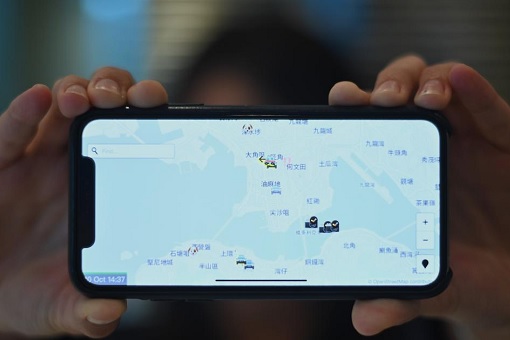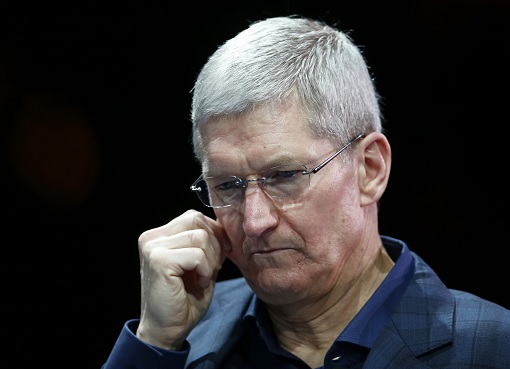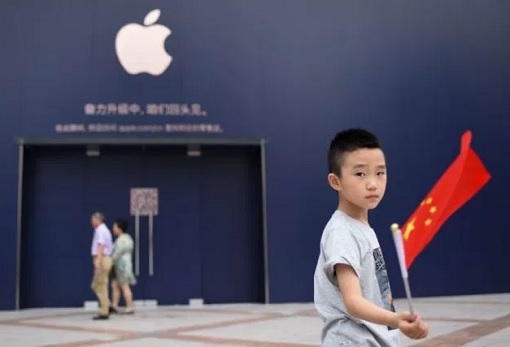Apple removed a popular app from its App Store on Thursday (Oct 10), after repeatedly flip-flopped on whether to allow the app to be used by Hong Kong protesters. At first, the iPhone maker rejected the app earlier this month, only to make a U-turn and made it available for download a few days later, before ultimately removing it from the App Store.
The app, HKmap.live, apparently allowed protesters in Hong Kong to share the location of police and plan their movements accordingly, similar to apps like Waze. The 2019 Hong Kong protests, also known as the Anti-Extradition Law Amendment Bill (ELAB) Movement, started in March and are still ongoing. Violence and chaos has since spread through Hong Kong.
Interestingly, Apple has also pulled down a news app – Quartz – from the App Store in China, arguing that the content is “illegal” in China. The news organization Quartz, which has been covering the Hong Kong protests in depth, received a notice from Apple on September 30 that said the app was being removed “because it includes content that is illegal in China.”

![]()
Expectedly, Apple’s latest decision to remove the HKmap.live app has been met with harsh criticism. Both Republicans and Democrats in Congress slammed the trillion-dollar company for its decision to drop the app on Thursday. Republican Senator Josh Hawley of Missouri said – “Who is really running Apple? Tim Cook or Beijing?”
Democratic Senator Ron Wyden of Oregon criticized Apple’s decision – “An authoritarian regime is violently suppressing its own citizens who are fighting for democracy. Apple just sided with them”. However, in a leaked memo to employees, Apple CEO Tim Cook explained the reason for the eventual decision to remove the app.
Mr. Cook said that Apple had received “credible” information from Hong Kong law enforcement authorities in recent days that “the app was being used maliciously to target individual officers for violence and to victimize individuals and property where no police are present.” Therefore, it violates Apple policies.

The Apple boss said that the app – a real-time, volunteer-run, and crowdsourced map of the city’s protests – “has been used in ways that endanger law enforcement and residents in Hong Kong,” as well as to “target and ambush police, threaten public safety, and criminals have used it to victimize residents in areas where they know there is no law enforcement.”
Apple also said that it received “credible information” from the Hong Kong Cybersecurity and Technology Crime Bureau about the threats and that the Chinese authorities have told it that the Quartz app didn’t comply with local laws. Therefore, both HKmap.live and Quartz have violated Apple policies.
Coincidentally, the move to remove the Hong Kong mapping app came just a day after Chinese state media condemned the American tech giant for supporting pro-democracy protesters through apps available in its App Store – warning the company would suffer consequences for its “unwise and reckless” decision of approving the “poisonous” app.

Due to the dynamic online map that shows the latest developments during protests in Hong Kong, where various “emoji” were used to show the locations and movements of police and protesters as well as places where tear gas has been deployed or barricades erected, China argued that such tool obviously helps rioters.
But critics have argued that the realtime mapping app is no different than other community-generated mapping platforms such as traffic app Waze (bought by Google for US$966 million in 2013), which factors in real-time data from users such as warnings of high-crime areas. Before Apple dropped the app, it was already available on Google Play for android users.
In further response to criticism that the company has chosen to kowtow to Beijing, Cynthia Hogan, Apple’s vice president for public policy, said that Apple believes that by doing business in the country, it promotes “the free flow of ideas and information,” and at the same time, Apple has to follow the laws of every country it operates in.

Apple was not the only American companies that have come under tremendous pressure from the Chinese government in recent days for their support of the ongoing protests in Hong Kong, which China has labelled as a dangerous separatist movement. Google was forced to remove a role-playing mobile app game – “The Revolution of Our Times”.
No matter what Apple says, the perception is that the company was forced by Chinese authorities to make compromises to preserve its business interests. The iPhone maker earned nearly 20% of its revenue from Greater China. In 2018, the revenue from China’s business was a jaw-dropping US$51.9 billion.
Other Articles That May Interest You …
- Xi Jinping Says “No Force Can Stop The Chinese”, Shows Nuclear Missiles Which Can Hit The U.S. In 30-Minutes
- Huawei Shockingly Offers 5G Patents To The U.S. – Here’s Why It’s Willing To Share Its Crown Jewels Technology
- Huawei’s Market Share Hits Record 38% In China – All Competitors’ Share Including Apple Plunges
- Economists Thought China’s Economy Depends On The World – But McKinsey Research Shows Otherwise
- Hong Kong’s 2-Million Sea Of Black – Here’s How Protesters Hide Their ID From Surveillance
- Here’s How Hong Kong Extradition Law Could Affect Its Reputation As A Global Financial Center
- From Trade War To Tech War – After 5G Technology, The US Aims To Cripple China’s Artificial Intelligence
- “You Cannot Crush Us” – Huawei Founder Warned About Shifting Investment From The U.S. To U.K.
- From Trade War To Political Kidnapping – Two Canadians Held “Hostage” As China Retaliates
- China Invasion – Top 10 American Iconic Brands Now Owned By Chinese

|
|
October 11th, 2019 by financetwitter
|


|

|

|

|

|

|




























Another stupid article. Apple is a business and it has to follow local laws. Why waste so much time here?
Please publish more articles with Malaysia contents. That is why I’m here and you seem to do very well. They are always top notch.